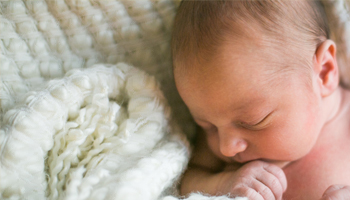HOW CAN WE HELP YOU? Call 1-800-TRY-CHOP
In This Section
Do the Effects of Neonatal Caffeine Therapy Persist in Middle School?

The findings:
Caffeine therapy can help premature babies breathe stronger and sooner on their own. When a group of caffeine-treated premature babies reached middle school, the therapy appeared to reduce their risk of motor impairment – building on earlier follow-ups that show the treatment’s safety, efficacy, and developmental benefits for the babies at one-and-a-half years old.
Why it matters:
About half of all premature babies will have apnea of prematurity, in which they experience difficulty breathing, hypoxic episodes (repetitive drops in their blood oxygen levels), and a higher risk for developing long-term disabilities like cerebral palsy. Previous follow-ups to this trial show that caffeine therapy helps to reduce the rate of these conditions when the babies reach 18 months. For parents, the important question remains: Do the treatment’s long-term benefits outweigh its long-term risks? According to this most recent follow-up, there seem to be no adverse effects.
Who conducted the study:
The Caffeine for Apnea of Prematurity (CAP) Trial Group involves an international array of investigators from Canada, Australia, and the UK, and its lead author is Barbara Schmidt, MD, an attending neonatologist at Children’s Hospital of Philadelphia.
How they did it:
More than 11 years ago, the researchers began to randomly assign 2,000 premature babies (who all weighed just 1 to 3 pounds) to either caffeine therapy at a dose equivalent to six cups of coffee, or placebo. The researchers followed these children’s academic performance, motor skills, and behavior over the years to find out how the caffeine therapy affected their mental and physical development.
Quick thoughts:
“The totality of our findings over the past decade reassures us that neonatal caffeine therapy is effective and safe when used as it was in the Caffeine for Apnea of Prematurity trial,” Dr. Schmidt said.
What’s next:
“Future research is required to evaluate whether longer therapy beyond the first discharge home from the neonatal unit is beneficial,” according to Dr. Schmidt. “A second question would be the examination of higher doses of caffeine.”
Where the study was published:
JAMA Pediatrics
Who helped fund the study:
The Canadian Institutes of Health Research supported the study.
Where to learn more:
You can read the study online at JAMA Pediatrics’ website and learn more about Dr. Schmidt’s research in pre-term babies on Cornerstone.


